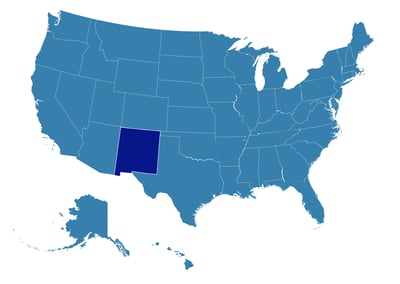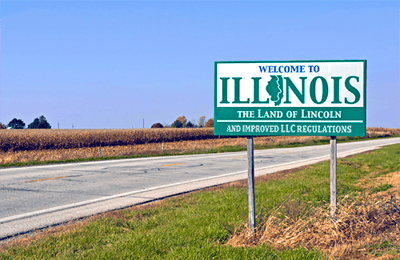Filing an annual report (or some sort of periodic report) comes with the territory of doing business. Just about every state requires these regular updates to maintain your company’s good standing status.
In recent years, annual report compliance has seen some important changes like new and/or enhanced platforms for online filing, updated existing reporting requirements or new fee structures that better match their state’s current business environment.
Ideally, these changes would be front-page news – but that is not always the case. The good news is our annual report compliance team monitors and tracks updates large or small, and we’ve put together a top 10 recap of changes you may have missed along the way.
10. Indiana LPs and LLPs must file periodic reports.
Previously in Indiana, limited partnerships and limited liability partnerships were not required to file at all. The new reporting rules, as of January 2018, are as follows:
- Entities formed before January 1st, 2018: Starting in 2019, the first biennial report is due on the last day of the anniversary month of the entity’s formation date, continuing in every odd year going forward.
- Entities formed on or after January 1st, 2018: The first biennial report due date is the last day of the anniversary month of the entity’s formation, and every two years thereafter.
9. Indiana also changed reporting requirements for all nonprofit entities.
 As of July 2016, the former annual reporting requirement for Indiana nonprofits is a biennial reporting requirement, which helped lighten the burden of nonprofit compliance.
As of July 2016, the former annual reporting requirement for Indiana nonprofits is a biennial reporting requirement, which helped lighten the burden of nonprofit compliance.
Nonprofit reports are due every other year on the last day of the original formation month.
8. Effective January 2019, annual notices are no longer required for LLPs in Alabama.*
Simple as that!
*Well, with one exception. Business privilege tax reports are still required.
7. Iowa increased biennial domestic corporation report fees.
As of January 2018, the state fee for electronic filings is now $45 and the fee for paper filings is $60.
6. On March 1st 2018, New Mexico’s Senate Bill 225 changed corporate biennial report due dates.
 Biennial reports for all New Mexico corporations are now due on the 15th day of the fourth month after the close of the corporation’s tax year, instead of the 15th day of the third month.
Biennial reports for all New Mexico corporations are now due on the 15th day of the fourth month after the close of the corporation’s tax year, instead of the 15th day of the third month.5. Beginning in the 2018 filing year, Maryland’s State Department of Assessments and Taxation streamlined the annual business filing process.
The filing form has been separated into an annual report and a personal property tax return, reducing unnecessary filing steps for entities doing business in Maryland that do not own personal property.
4. Idaho upgraded their business services portal and assigned new entity ID numbers.
 Previously, Idaho entity ID numbers were alphanumeric, beginning with a C or W followed by 6 numbers. Following the system upgrade in October 2018, entity IDs are numerals only, beginning with a series of zeroes. Legacy IDs can still be used to search for an entity but will eventually be phased out.
Previously, Idaho entity ID numbers were alphanumeric, beginning with a C or W followed by 6 numbers. Following the system upgrade in October 2018, entity IDs are numerals only, beginning with a series of zeroes. Legacy IDs can still be used to search for an entity but will eventually be phased out.
A PIN number must be requested by an authorized e-mail address to gain access to the annual report filing page.
(We’ll be taking a closer look at the impact of these ID number changes and PIN requirements in the near future.)
3. Connecticut’s Public Act 16-97, effective in 2018, changed annual report due dates for LLCs.
Annual reports for LLCs in Connecticut are now due between January 1st and March 31st. LLC annual reports used to be due on the last day of the original formation or qualification month.
2. Illinois Secretary of State reduced filing fees for all LLCs with Senate Bill 867.
 'Business-friendly' legislation changes in Illinois in late 2017 reduced filing fees associated with forming a new LLC or maintaining annual report requirements.
'Business-friendly' legislation changes in Illinois in late 2017 reduced filing fees associated with forming a new LLC or maintaining annual report requirements.
Annual report fees dropped from $250 to $75.
1. North Dakota goes digital.
Annual report filings and information updates can now be completed online, thanks to the North Dakota Secretary of State's release of their FirstStop portal in January 2019.
Users are required to establish a login account and enter a PIN to securely access their records. Before FirstStop, North Dakota corporations and LLCs were still required to file by paper and either mail or fax the report to the state, which created long turnaround times for results.
What annual report compliance changes have impacted you the most?
Tell us in the comments below.
This article is provided for informational purposes only and should not be considered, or relied upon, as legal advice.

